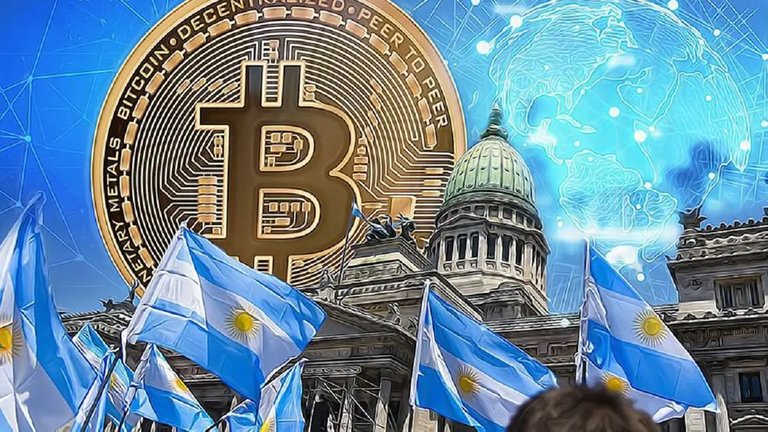The Central Bank of the Republic of Argentina (BCRA) has outlawed the purchase of all cryptocurrencies, including Bitcoin, through banks, which has startled many. This comes only days after two major financial institutions announced that clients would be able to purchase Bitcoin and other digital currencies. According to their official statement, the measure mandated by the BCRA intends to limit the dangers that operations with these assets may produce for users.
Many say, however, that this is simply a means of closing financial exits and preventing individuals from exchanging their Argentine pesos for US dollars or Bitcoin. When consumers swap their ARS for US dollars or Bitcoin, the ARS declines even more, hastening the Doom Loop. When a government's debt levels rise, it causes high inflation, which causes a weaker currency, which causes higher debt levels. People are forced to keep holding the bag, which in this case is Argentine pesos, government bonds, and so on. These lose purchasing value, especially when inflation is extremely strong, such as 100% per year.
Argentina has been plagued by high inflation for quite some time. In 2020, the 12-month inflation rate was more than 100%, implying that prices had doubled in a single year. This makes it impossible for the average person to save money or invest in long-term assets. Many Argentinians have turned to Bitcoin to safeguard their money against inflation and currency depreciation. However, with the current ban, they no longer have this option.
The Bitcoin community is outraged, with many questioning the government's objectives. Billionaire investors such as Warren Buffet and Steve Eismann have criticised Bitcoin, claiming it has no value or utility. The scenario in Argentina, on the other hand, demonstrates that Bitcoin can be quite valuable in countries with high inflation rates. It offers an alternative store of value that is not dependent on any government or central bank. If consumers can't buy Bitcoin legitimately, they'll resort to the black market or other illegal means, which can be risky and dangerous.
The cryptocurrency prohibition is the latest in a series of measures implemented by the Argentine government to limit capital flight. In 2020, they prohibited dealers from transferring their Bitcoin into US dollars, which was interpreted as an attempt to deter people from fleeing the ARS depreciation. This is similar to what we're witnessing in other nations, such as Venezuela, where the government has likewise prohibited the acquisition of bitcoin. Governments and central banks clearly see Bitcoin as a challenge to their control over the financial system.
Finally, the ban on cryptocurrency purchases in Argentina is a setback for people attempting to preserve their funds from inflation and currency depreciation. It demonstrates that governments will go to any length to keep control over the financial system, even if it means curtailing citizens' freedom. While this is beneficial to the government, it is detrimental to the people who are left carrying the bag. As Bitcoin and other cryptocurrencies gain popularity, more attempts to ban or restrict their usage are likely. It is our responsibility to fight for our financial liberty and develop strategies to safeguard ourselves from the perils of excessive inflation and currency depreciation.
Source:
Bitcoin University, 9 May 2023, "Central Bank Banning Bitcoin (Exits Closing)",
